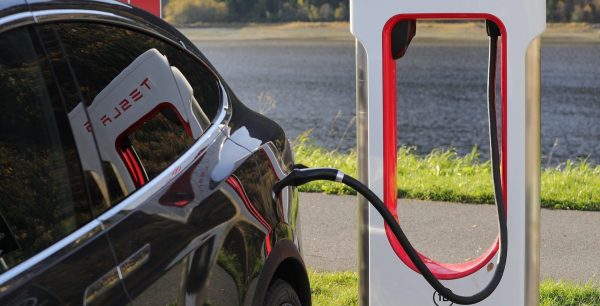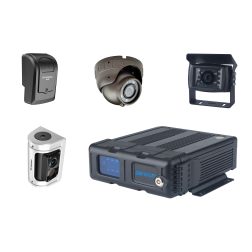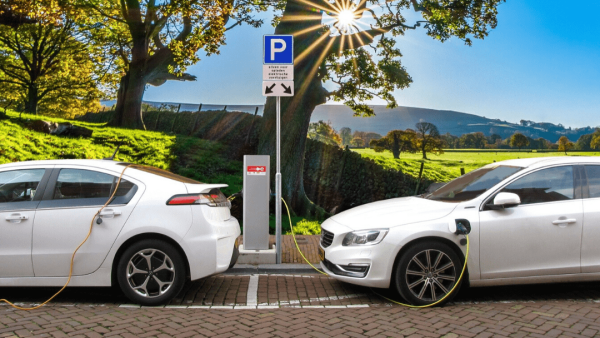How Telematics Come Into Play When Adopting Electric Vehicles
October 26, 2020
There are many things businesses and fleet managers should consider when it comes to choosing the right vehicle for their fleets – price, comfort, styling, functionality, environmental impacts and energy efficiency are just a few of these factors. When looking towards the future, fleet managers should think about whether the vehicle can meet the challenges and demands in the upcoming decades, especially the environmental impact the vehicle will have. This results into researching best practices when adopting electric vehicles.
Why There Is A Focus On Adopting Electric Vehicles
Apart from the government initiatives and regulations encouraging fleets to adopt electric vehicles, there are numerous benefits to be aware of.
The electric vehicle is not just more environmentally-friendly than the conventional internal combustion engine vehicle but represents a giant leap in technological advancement in all categories. Electric vehicles are more responsive and have a very good torque due to faster reaction from the electric motor. Electric vehicles are smarter and more digitally-connected than conventional vehicles, offering more flexibility for fleet managers to dispatch and manage the fleet remotely. The operational and maintenance costs of electric vehicles are also much lower than that of conventional vehicles, giving businesses significant cost-savings over the long run.
More importantly, an all-electric fleet demonstrates a businesses’ commitment to embracing future technology and new mindsets, which also presents a sustainable and innovative brand image to customers and the public. With all these benefits and advantages, electric vehicles have become an incredibly appealing product that prepares businesses for the future.
The Commitment To Electric Vehicles
Once a business decides to proceed with adopting electric vehicles, they should start thinking about how they plan to migrate to an electric fleet. The process must be carefully planned to minimize the impacts of the transition on day-to-day operations. Any abrupt or unplanned fleet structure changes could result in countless unexpected issues that severely degrade fleet performance. Modern-day businesses cannot afford to lose productivity or suffer asset breakdowns as a result of adopting electric vehicles; thus, a data-driven staged approach is necessary to pave the way for a smooth transition.
The Easy Gap To Bridge Between Telematics and Electric Vehicles
Electric vehicle fleets have a fundamentally different operational and maintenance model than conventional vehicle fleets. Many existing onboard sensors and equipment designed for conventional vehicles require an update to better service electric vehicles.
Sensors and equipment that measure and analyze vehicle fuel consumption need to be replaced with technologies that measure battery energy use and track long-term battery degradation.
Additionally, many new vital metrics exclusive to the tracking, monitoring, and management of electric vehicle fleets are only quantifiable and trackable through completely redesigned fleet management platforms. Battery health, charging status, electric motor status are just a few examples of performance benchmarks that fleet managers need to monitor after the transition of adopting electric vehicles.
Modern telematics technologies have been well prepared to help fleet managers track all the electric fleet metrics so that they can make informed data-driven decisions based on the data collected.
How To Choose The Right Telematics Solution For Your Electric Fleets
There is a wide variety of telematics solutions on the market that claim they offer “full support” for electric fleets. However, many of them just power on their tracking devices and perform basic tracking functions on electric vehicles. Very few can offer a truly integrated and highly customizable hardware and software experience catered specifically for electric vehicles. Here are a few things fleet managers should be looking for when selecting the right telematics solution for your fleet electrification project.
Electric Vehicle Suitability Assessment
Electric Vehicle Suitability Assessment (EVSA) is an integral evaluation procedure that helps fleet managers analyze and determine which part of the fleet is suitable or should be prioritized to go electric. An EVSA would act as your trusted consultant that accurately informs you which vehicle in your fleet can be replaced with an electric vehicle.
One key reason for conducting EVSA is ensuring that the newly acquired electric vehicles can complete the same daily tasks and workloads as the original conventional vehicle in the same amount of time with similar or better efficiency and no productivity loss.
By comparing the real-world historical data recorded on thousands of existing commercial electric vehicles with businesses’ existing fleet activity profiles and driving patterns, the system can determine whether the fleet electrification will have any adverse impacts on existing operations. The system looks at a broad range of metrics such as retail price, vehicle class, battery capacity, range, maintenance costs and procedures, charging speed, availability of charging stations, operational costs and environmental footprint to provide the most comprehensive detailed level of analysis report and purchasing guidance to fleet managers.
The analysis also reveals which environmental benefits the electric fleet can bring by measuring the carbon footprint in both conventional and electric fleet operations scenarios. The CO₂ emissions report, one of the standard add-on features offered by EV-friendly telematics companies, gives fleet managers an explicit look at each vehicle’s carbon footprint during operations. Fleet managers can make informed decisions about whether the benefits outweigh the investment costs.
Largest Number Of Electric Vehicle Models Support
Most of the telematics solutions on the market do not offer electric vehicle support. By support, we mean the system should display a wide range of critical electric vehicle metrics such as energy use, charging data, and real-time analysis to the fleet managers and drivers. This should be differentiated from the telematics companies claimed that only power on and provide basic location-tracking functions on electric vehicles.
The more information a telematics solution can provide to the businesses, the more likely the entire fleet operation can run smoothly, and any issues that arise can be solved early and quickly. When selecting a telematics solution, fleet managers should always ask the sales agents how many electric vehicle models or makes their telematics solution fully support. This makes a important difference because more choices simply mean that the fleet manager can select the one that fits their budget and needs with no constraints and limits.
Additionally, fleet managers should also check with the telematics providers regarding their ability to add model support over time. The electric vehicle market is a fast-growing industry with new vehicle models adding to the market every month. By 2022, we expect to see over 500 different electric vehicle models on the market. The telematics solution must keep up with the growth and continually add support for new models because a fleet needs all their electric vehicle models supported.
Why Telematics Solutions Are Important For Electric Vehicles
Electric Vehicle Charge Assurance Dashboard
Telematics solutions bring a range of helpful tools and customizable features to customers to pave the way for smooth electric fleet operations in the long run. An electric vehicle charge assurance dashboard is a convenient software platform that allows fleet managers to easily track, monitor, and manage each vehicle’s charging status in the fleet.
The telematics would provide real-time charging activities of all vehicles on a map, so fleet managers gain full visibility of each vehicle’s location and battery status. The platform would also clearly indicate whether the charging processes go through correctly.
One of the major problems for any business and fleet managers is that they think the vehicles have plugged in for charging overnight, but the next morning, they realize the charge didn’t go through, or the vehicle didn’t get fully charged due to a problem. This could be an expensive mistake as the vehicle has to be taken out of service for that day.
With an electric vehicle charge assurance dashboard, the system will notify fleet managers at all critical stages of the charging process. It will alert fleet managers if a vehicle is on low battery, the charging didn’t start correctly, and when the charging was completed so that fleet managers can stay on top of the entire fleet operation.
The electric vehicle charge assurance dashboard will be a perfect companion for fleet managers who look for answers to these questions:
- Whether my electric vehicle will have enough charge to finish the assigned workloads for that day?
- Are charges happening properly?
- Which electric vehicle might run into the risk of running out of battery before finishing all the tasks?
- Can my electric vehicle reach the target charge before a certain time point?
- What is the current charging speed for electric vehicles, and how long does it take to get a full charge?
Electric Vehicle Battery Degradation Tool & Temperature Tool For Electric Vehicle Range
In addition to the electric vehicle charge assurance dashboard, telematics solutions offer a range of tools and products that are designed to provide an enhanced experience for electric fleet management. A battery degradation tool could compare the average battery degradation over time for different vehicle models, offering fleet managers valuable information about how they can expect their fleet battery to perform long term.
Temperature monitoring tools monitor the impact that changing temperatures have on range is essential during colder months. In winter, drivers are likely to turn on the heat in the vehicle, consuming battery energy resulting in a slightly shorter vehicle range. Imagine if fleet managers didn’t consider these factors, the vehicle would likely run out of battery faster than planned.
Telematics solutions accurately calculate and quantify the temperature impacts on the range after analyzing a large number of real-world range datasets of the same vehicle model from your fleet, so fleet managers know precisely what they can expect from vehicle performance in colder weather. This will eliminate vehicles unexpectedly running out of batteries in the future.
If the fleet managers have any of these questions in mind, look no further, as telematics offers the most diverse range of products that suits your fleet’s needs:
- What is the real-time energy consumption of any electric vehicle in the fleet?
- What happened during that trip that causes a rise in energy consumption?
- How long can I expect my vehicle battery to last based on real-world operations?
- How does temperature impact the range of electric vehicles? Can the vehicle still handle the same amount of workload as before?
The electric vehicle might still look like a niche product for many businesses; however, with the help of telematics, we are able to make your fleet transitioning process as smooth as possible. With customized and smart tools designed specifically for fleets adopting electric vehicles and a rapidly expanding real-world database, telematics can leverage real-world data and historical fleet patterns to help you make the right decisions.
Contact us to speak with a fleet electrification expert to see how we can build a unique telematics solution that takes your businesses’ electric fleet to the next level.









